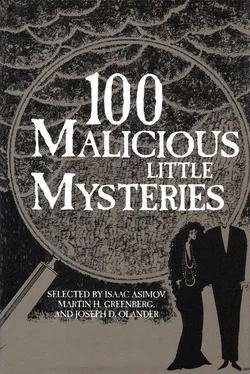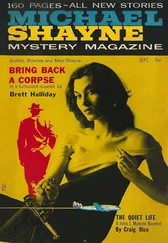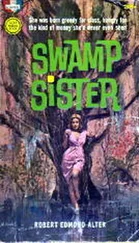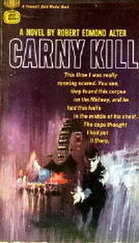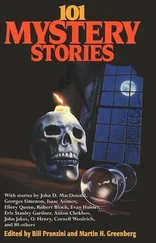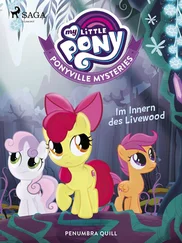This was why I sat up with your father into the night, to see the play run out to its end. His lordship had sent the steward on some errand to Launceston, and ordered Betty to her room an hour before sunset, to stay there all the night as punishment for some pretended fault in sweeping her kitchen. All so that we would be alone; and I much thought he meant to settle all likelihood of Curnow ever telling what he had done.
There had come no word nor even rumour from the mine during the day, and we did not know whether Curnow would return on this night or another — or indeed, I thought, ever. Your father sat and studied over his accounts. You remember how he loved his accounts, Hal: as others love their coin, and more, for there was ever the hope of catching some mistake I had made in casting them up, for which he might take me to task. I nodded over my book, and as the hours passed I rose to pour out a glass of wine from the silver bottle which had been your mother’s pride.
“I would advise you against it, Margery,” said your father.
I smelled the wine. It was hippocras, sleep-heavy with many spices. I brought back the glassful and set it at his elbow, rather than my own, and saw that he did not drink. “Why did you not find some means of killing Penhallow by your own hand?” I asked.
“Penhallow would not have trusted himself near enough my hand,” said your father. “Nor would I have trusted myself near his.”
“Perhaps Ned Curnow will not trust himself near your hand again, neither,” said I.
“I took the man’s measure,” said his lordship. “There is twenty pounds in the balance. He will come.”
I thought that your father had but applied his own scale to Curnow, while that insolent man with neither hope nor desire nor fear in his grey-green eyes had likely taken better measure of his lordship. But I did not speak this thought, and so we waited. Somewhat after midnight a storm broke, and, thinking Curnow would not come, I might have sought my bed, but every moment I delayed would lengthen out into another moment, and yet another, and so I sat on, scarce thinking, with my book open in my lap. Your father had laid aside even his accounts, and all was still, excepting only the thunder and rain without. A mouse ventured into the middle of the floor. Your father said, “We must find another cat,” and at the sound of his voice the mouse scurried away.
Close on to one, Curnow came, knocking at the door in the pattern they had arranged. His lordship sent me with a rushlight to bring in his hireling. Curnow was wrapped in a ragged sodden cloak, and trailed mud and filth wherever he stepped, yet on seeing me, he gave me a greeting which shewed he had indeed had gentle breeding once.
When we were come again into the parlour, his lordship stood already with the silver bottle in one hand and a fresh glass in the other. “Have you done it?” he asked.
Curnow unwrapped the cloak and tossed it down on the bench. Beneath it he carried in one hand his miner’s pickaxe of iron. The rain had wetted him through cloak and all, but had not utterly rinsed away the blood and bits of hair from the flat-headed end. Curnow stepped forward to shew it his lordship at closer hand.
His lordship looked shrewdly at the blood, and nodded. “There is your twenty pounds, safe in the purse,” said he. “But drink you a glass of hippocras before you go, to warm you against the weather.”
“Tom Pen hallow told me much about you before he died,” replied Curnow, “and there is one thing which I owe his soul.” And turning the pickaxe to the sharpened end, he drove it into your father’s skull. The poisoned wine mingled with the blood and streams of filthy water, and the silver bottle took a great dent as it fell.
Curnow let fall the pickaxe with your father’s corpse, and turned to me. He smiled. “Here is enough of murder for the day, my lady,” he said. “But do not follow me, lest you take a chill in the storm.”
I smiled at him then as a woman smiles at a man. “There will no one come until the morning,” I said. “Time enough to take off your clothes and dry them by the fire.”
Hal, your father never did but one good work in the whole of his life, and that was the begetting of you, and that he undid again the night he let you die for his stubborn heart. Yet he was your father, and my father-in-law, and murdered, and he had at least the bowels to leave me better provided for by his death than he had in his life. Let his slayer go out into the night and the storm, and by morning was it likely they could find so much as his trail?
Forgive me, Hal, my husband, my love, but how else could I keep Ned Curnow until the morning, when he could be taken, save in my bed?
Child on a Journey
by Fred S. Tobey
The big jet had scarcely lifted off the runway at Los Angeles Airport before the passengers began to busy themselves with the things that would pass the time on the long flight to Boston. Some turned their eyes to the TV screen, waiting for the movie; others took out books and magazines. A Hollywood actress drew a script from her handbag and began leafing through it. Two elderly men opened a pack of cards and started playing rummy.
Dr. Gordon Prince, sitting by himself in a window seat in the coach section, waited until the airliner was well above the clouds before he took his nearly completed treatise on medieval history from his briefcase and laid it on the little table that he had lowered from the back of the seat in front of him. The lengthy document, on which he had labored for weeks, was to be published in a distinguished journal, and the youthful professor of social science meant to spare no effort to perfect the syntax and punctuation. By great good luck, the two seats beside him had not been sold, and he was taking an almost sensual pleasure in the thought of the quiet hours of undisturbed concentration that would be his. He thought he might even pass up dinner, and work right through.
Midway through page two, as Dr. Prince raised his eyes to ponder a fine point of grammar, he became aware of a small figure standing in the aisle beside his seat. He brought his eyes into focus and saw that it was a girl of seven or eight. She was staring at him steadily with large blue eyes. A pair of auburn pigtails hung primly down the front of her blue denim dress.
“Hello,” she said. “My name is Suzy. Are you busy reading?”
Dr. Prince was a very literal man. “Not exactly,” he said. “I’m writing something.”
The child’s eyes grew even bigger. “Oh, that must be wonderful,” she said. “I’m going to write when I get older. Do you write for movies?”
“This is a different kind of writing,” the professor said. He supposed it was not surprising that a writer boarding in Los Angeles should be suspected of turning out froth for the screen. “This is history. Important things that really happened.”
Suzy dropped into the aisle seat. “I guess I’ll sit here a minute,” she said. “Unless you don’t want me to.”
“Well...” Dr. Prince began; then, rather lamely: “Won’t your mother be wondering where you are?”
“Mummy—” Suzy paused and looked appraisingly at Dr. Prince, as if wondering how much she should confide in this stranger. Then she shook her head. “Mummy’s dead,” she said. “Mummy and Daddy were killed in a car accident, and Uncle takes care of me.”
Dr. Prince looked at the child with increased interest. What a shame that one so young should lose her parents! The professor was not married, but he expected to marry someday when he found time, and if there were children he hoped they would be like this one: bright, neat and well-spoken.
“My big brother was killed, too,” Suzy offered. “He was driving the car and he and Daddy were having a big fight about money, and he went too fast and hit a tree. I was lucky because I was in the back seat and only got hurt a little, and I went to the hospital but I’m all right now.”
Читать дальше
